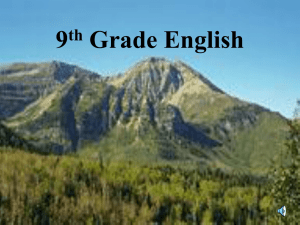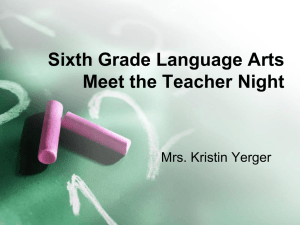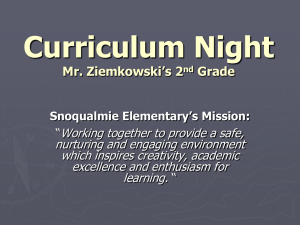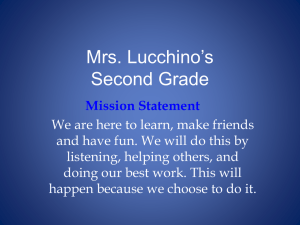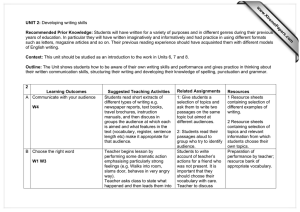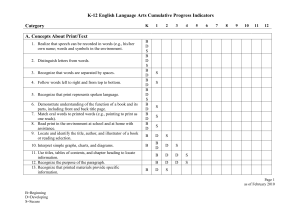Third Grade Curriculum
advertisement
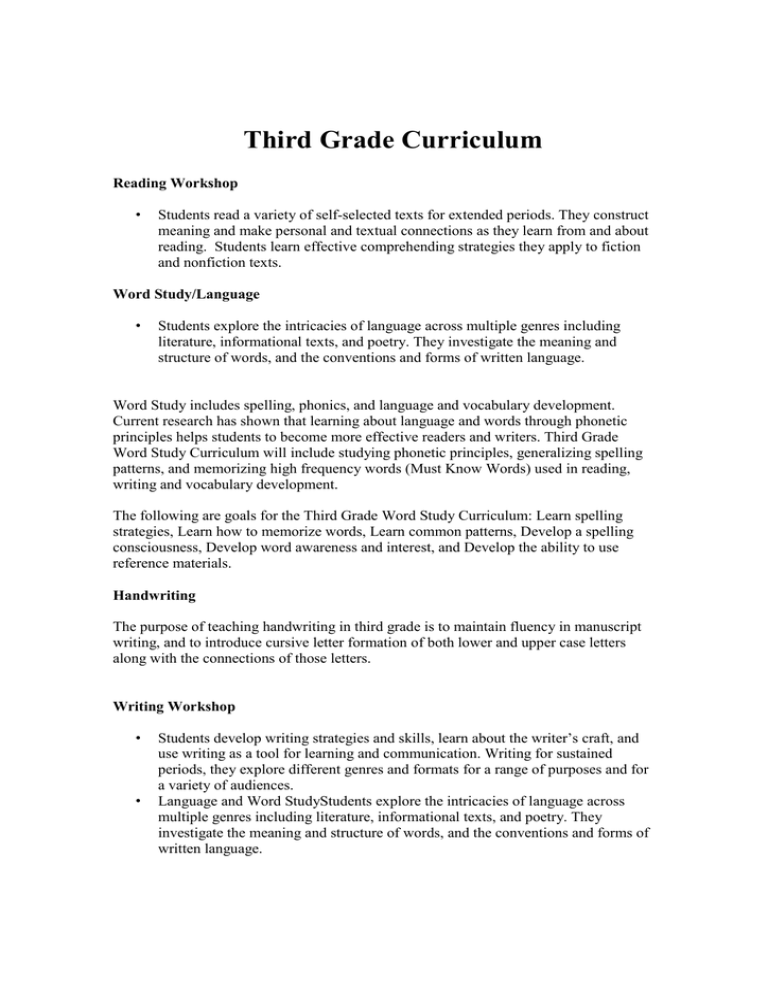
Third Grade Curriculum Reading Workshop • Students read a variety of self-selected texts for extended periods. They construct meaning and make personal and textual connections as they learn from and about reading. Students learn effective comprehending strategies they apply to fiction and nonfiction texts. Word Study/Language • Students explore the intricacies of language across multiple genres including literature, informational texts, and poetry. They investigate the meaning and structure of words, and the conventions and forms of written language. Word Study includes spelling, phonics, and language and vocabulary development. Current research has shown that learning about language and words through phonetic principles helps students to become more effective readers and writers. Third Grade Word Study Curriculum will include studying phonetic principles, generalizing spelling patterns, and memorizing high frequency words (Must Know Words) used in reading, writing and vocabulary development. The following are goals for the Third Grade Word Study Curriculum: Learn spelling strategies, Learn how to memorize words, Learn common patterns, Develop a spelling consciousness, Develop word awareness and interest, and Develop the ability to use reference materials. Handwriting The purpose of teaching handwriting in third grade is to maintain fluency in manuscript writing, and to introduce cursive letter formation of both lower and upper case letters along with the connections of those letters. Writing Workshop • • Students develop writing strategies and skills, learn about the writer’s craft, and use writing as a tool for learning and communication. Writing for sustained periods, they explore different genres and formats for a range of purposes and for a variety of audiences. Language and Word StudyStudents explore the intricacies of language across multiple genres including literature, informational texts, and poetry. They investigate the meaning and structure of words, and the conventions and forms of written language. Math Principles 1. Math is more than arithmetic. 2. Understanding is just as important as fluency. 3. Visual models help us remember and invent important mathematics. 4. Problem solving is central to mathematics instruction. 5. Math is a social activity. O Teachers understand and utilize the continuum of math frameworks and standards both vertically and horizontally O District math resources are implemented as tools for instruction based on the standards and student assessment data. O Teachers confidently and competently implement research-informed best practices and use effective instructional teaching strategies. Science The following units will be covered: Sound and Light, Life Structures, and space.

